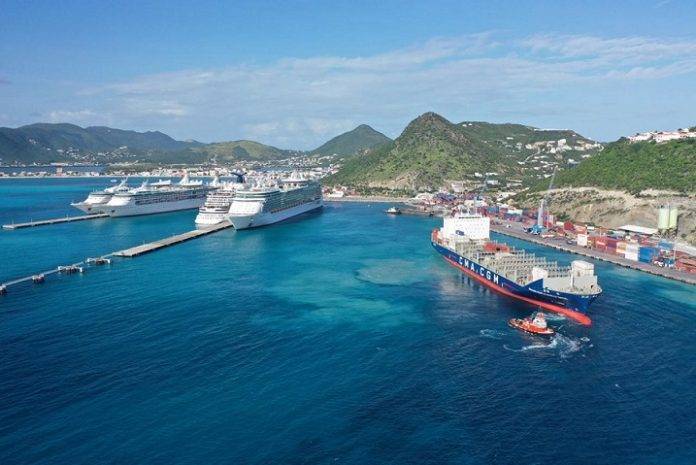GREAT BAY — The island’s heavy dependence on food importation makes port efficiency directly linked to food security, said TEATT Minister Grisha Heyliger-Marten.
At a meeting last Friday, the Minister of Tourism, Economic Affairs, Traffic and Telecommunication (TEATT), told Alex Gumbs, Chief Executive Officer (CEO) of Port St. Maarten Group of Companies that delays at the port can disrupt the supply chain, leading to shortages and higher prices of essential food items.
“Diverting ships to other ports due to inefficiencies at ours increases transportation costs, further impacting food prices,” the minister said.
According to her, efficient handling of perishable goods is critical to prevent spoilage and economic waste. She added that a reliable port operation ensures a steady flow of imports, essential for maintaining stable food supplies and prices.
Heyliger-Marten emphasized the importance of food sustainability, which involves maintaining a stable and secure food supply without compromising future needs. She stressed the need to build resilient supply chains, as well as encouraging domestic food production, minimizing food waste, and ensuring environmentally sustainable practices.
The minister stressed that the efficient use of Port St. Maarten infrastructure is critical for maximizing throughput and minimizing costs. Faster turnaround times allow for more ships to be serviced, she noted, thus increasing the port’s capacity and revenue.
In her opinion, efficient operations enhance resource allocation, thereby reducing idle time and improving productivity. “A well-maintained and efficient Port provides a competitive advantage, attracting long-term business from shipping lines,” said the minister.






























